Peach, Pho and Piano is considered an unprecedented box office phenomenon in Vietnamese cinema. After causing a stir at the National Cinema Center, the film was voluntarily released by two private entities. All ticket sales revenue will be paid into the state budget.
In a conversation with VTC News reporter, marketing and communications expert Le Quoc Vinh shared frankly about the "phenomenon" Dao, Pho and Piano .

"Peach, Pho and Piano" is considered a rare phenomenon for a state-ordered film.
- The fact that "Dao, Pho and Piano" has become a hit can be considered a rare event for a film ordered by the government. What do you think about the effects that the film has spread in recent days?
To me, this proves once again that state-ordered products are good works, products worth watching. Before Dao, Pho and Piano , we had many good films, even many films that won international awards. These were films that were both political and propaganda and had high artistic value. However, these films only had a certain audience.
The fact that Dao, Pho and Piano became known and became a media shock can be called luck.
In business, this issue is actually a normal story. When launching any product, the manufacturer at least hopes to recover capital and then set profit targets. Any person with a business mindset thinks about that story.
The Dao, Pho and Piano incident clearly shows the problem that we have products but have no intention or plan to widely release and seek revenue.
Le Quoc Vinh
However , Dao, Pho and Piano show the problem that we have products but no intention and plan to widely release and seek revenue. To me, that is strange!
- Is the strange thing you just mentioned one of the reasons why the film has not been able to reach a wide audience?
Director of the Cinema Department Vi Kien Thanh once said that we do not have the funds to release films ordered by the state. This is a sad reality.
When producers finish a film, they will not have the funds to invest in marketing and bring the film to the right audience. The state budget has not yet calculated that source of funding.
Up to now, it seems that we have not paid due attention to the concept of marketing for a cultural product. In my opinion, this is a problem in the cultural industry when we only focus on making products without thinking about how to effectively bring the products to the public.
However, it must be said that even if Dao, Pho and Piano were released in private theaters, there would be no way to share the revenue with the state. According to the regulations, all revenue would have to be paid to the state. So how could it be released in private theaters when they need to have a source of revenue to operate?
Therefore, the government is forced to release these films in the state-run cinema system. With the limited number of state-run cinemas, how can they reach the majority of the public?
In my opinion, this problem is not an individual problem. This is a problem with an outdated mechanism. The sad thing is that we know it is outdated but it has not changed as expected.

Marketing and communications expert Le Quoc Vinh.
- In your opinion, how do we need to change the mechanism so that cultural products like "Dao, Pho and Piano" can reach a wide audience?
We need to "untie" the mechanisms. We need to change the way we think about funding a state cultural product in a different way.
I think it is necessary to assign responsibility and budget to a proactive unit when doing business with state cultural products. In addition, it is also necessary to preserve the capital invested by the state.
Like a private enterprise, they take money from investors and must invest it most effectively. They are forced to have a marketing plan to make a profit and achieve high efficiency. However, with state-owned products, the requirements may not be too high, but the producers must still be empowered to be autonomous in the business of that cultural product.
If we want to do this, we have to change many outdated regulations in the state legal system. Investors have the right to regulate capital in the most appropriate way. We also have to be proactive in signing distribution contracts for the products we are working on with private distribution systems, even platforms like Netflix, FPT Play... to recover capital.
To change this, the whole mechanism needs to change, not just simply calling on people to release it sporadically. People can make one film, but what about the next ones?
Only inefficient theaters are willing to show non-profit films to attract customers. However, large theaters like CGV certainly cannot sacrifice to serve a state product without any revenue. I think when it comes to the cultural industry, we need to be fair with the market mechanism.
- As you said, many state-ordered films have great potential if we know how to promote them. If we have a reasonable mechanism, is the dream of films like this earning hundreds of billions of dong too far-fetched?
I think it is absolutely possible! With a well-invested, high-quality film, it is entirely possible to generate high revenue. If we truly consider them as a product, doing business according to a fair market mechanism, it is not too difficult to generate a large revenue, even hundreds of billions of dong.
The important thing is that the manager's mindset is to invest and recover, not just to give away. The mindset of only providing without knowing how to recover capital needs to be broken. If the business mechanism is given, then surely the filmmaker will have to do market research, write scripts or produce to suit many audiences. I believe that it is completely possible to ensure the input of a state-owned film.
Source


![[Photo] Party and State leaders attend the special art program "You are Ho Chi Minh"](https://vphoto.vietnam.vn/thumb/1200x675/vietnam/resource/IMAGE/2025/5/18/6895913f94fd4c51aa4564ab14c3f250)

![[Photo] Party and State leaders visit President Ho Chi Minh's Mausoleum](https://vphoto.vietnam.vn/thumb/1200x675/vietnam/resource/IMAGE/2025/5/19/d7e02f242af84752902b22a7208674ac)
![[Photo] Special flag-raising ceremony to celebrate the 135th birthday of President Ho Chi Minh](https://vphoto.vietnam.vn/thumb/1200x675/vietnam/resource/IMAGE/2025/5/19/1c5ec80249cc4ef3a5226e366e7e58f1)











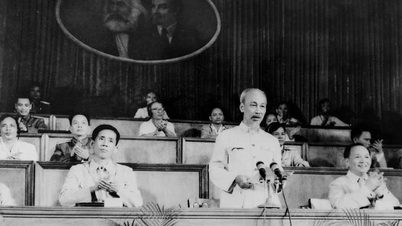







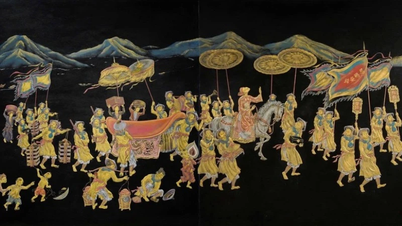






























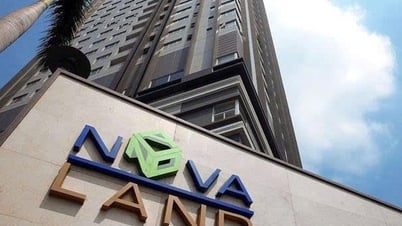









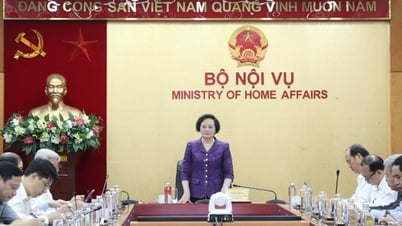


















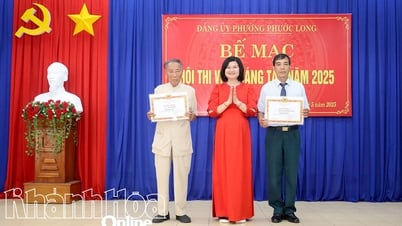









Comment (0)